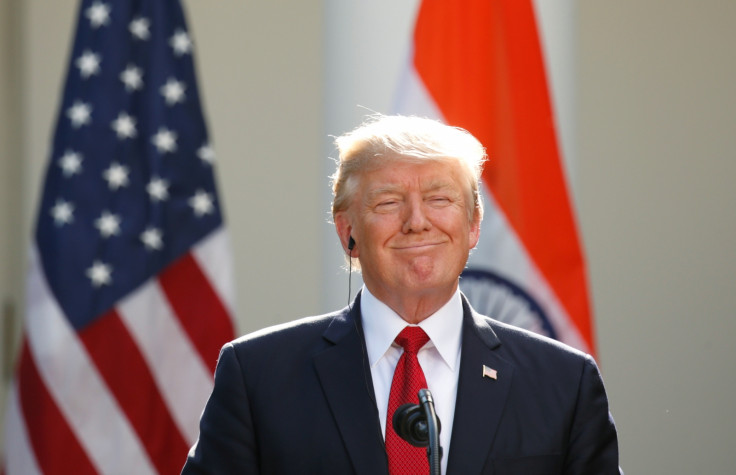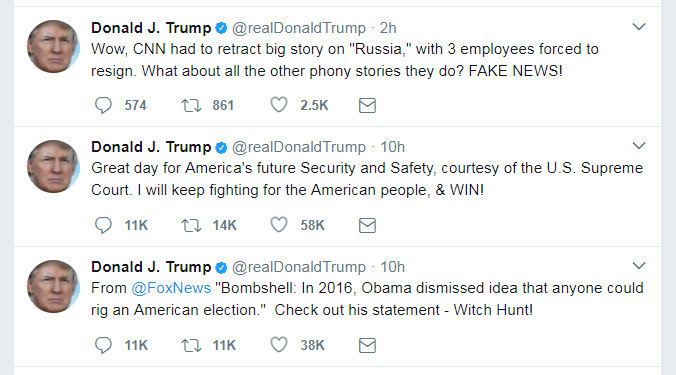This is why Donald Trump's tweets are so effective - can you spot the simple trick?
Psychologists say Trump uses moral and emotional words to touch people with a similar political outlook.

In the past, politicians and US presidents have had to rely on in-person meetings and media favour to get their messages across to the wider public.
President Trump is different – through his election campaign and presidency, he has relied predominantly on the social network Twitter to communicate with people, and it seems to be working for him.
Trump is well known for tweeting in a very specific way: he talks about a situation that he feels people should be outraged and upset about, and mentions that the situation makes him feel "sad". In fact, he has used the same word so many times about a variety of issues, that journalists have started keeping count.
Over time he has also started using other emotive words, sometimes capitalised, at the end of statements as a way punctuate the point he wants to make.
A casual look at his Twitter account today shows his latest tweets feature words like: "[keep America] SAFE", "Witch Hunt" (assumably against Trump), "FAKE NEWS!" (about CNN retracting a story on Russia), "[Trump will keep fighting for the American people and] WIN!", "[Perhaps just let Obamacare] crash and burn", "Nice!" (about Trump getting rid of regulations without Democrat support) and "WHY?" (about Obama administration allegedly doing nothing about Russia meddling with the election).

Moral and emotional language use
While it often looks like Trump is firing out highly strung, knee-jerk tweets, it seems that there is a method to the madness.
Psychologists from New York University have found that tweets containing both emotional and moral language – a field called "moral psychology" – are far more likely to be shared by other users who have similar political views.
Their research, entitled "Emotion shapes the diffusion of moralised content in social networks" is published in the journal Proceedings of the National Academy of Sciences of the United States of America (PNAS).
The study analyses 563,312 tweets from multiple users relating to controversial public issues such as gun control, climate change and same-sex marriage, evaluating each tweet's rate of success by the number of retweets it received.
The researchers found that moral-emotional language substantially increased how much the tweets were shared by others in the same ideological group, whether the group was liberal or conservative in its beliefs. At the same time, the tweets were also less likely to be shared by people with opposing views.
Not dignified, but gets the job done
The type of emotion being portrayed in the tweets also mattered – the tweets that used language to convey the emotion of love or anger were shared far more than tweets that conveyed sadness or disgust.
While many social and political critics consider Trump's tweets to be brash and impetuous – the opposite of the dignified calm meant to emanate from seasoned politicians – the researchers conclude from their study that when politicians and leaders of social movements express moral emotions, no matter whether they are trying to positively or negative influence, it works as a method to increase people's exposure to the message.
"Our results highlight the importance of emotion in the social transmission of moral ideas and also demonstrate the utility of social network methods for studying morality," the researchers write in the paper.
"These findings offer insights into how people are exposed to moral and political ideas through social networks, thus expanding models of social influence and group polarisation as people become increasingly immersed in social media networks."
© Copyright IBTimes 2025. All rights reserved.






















